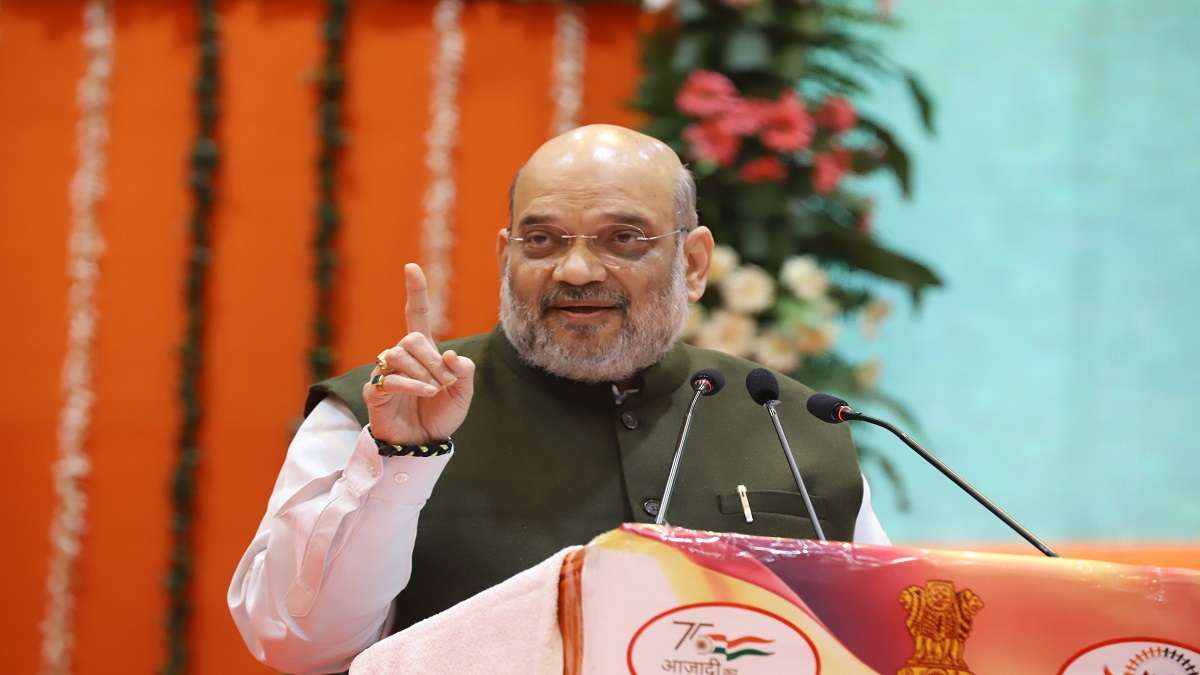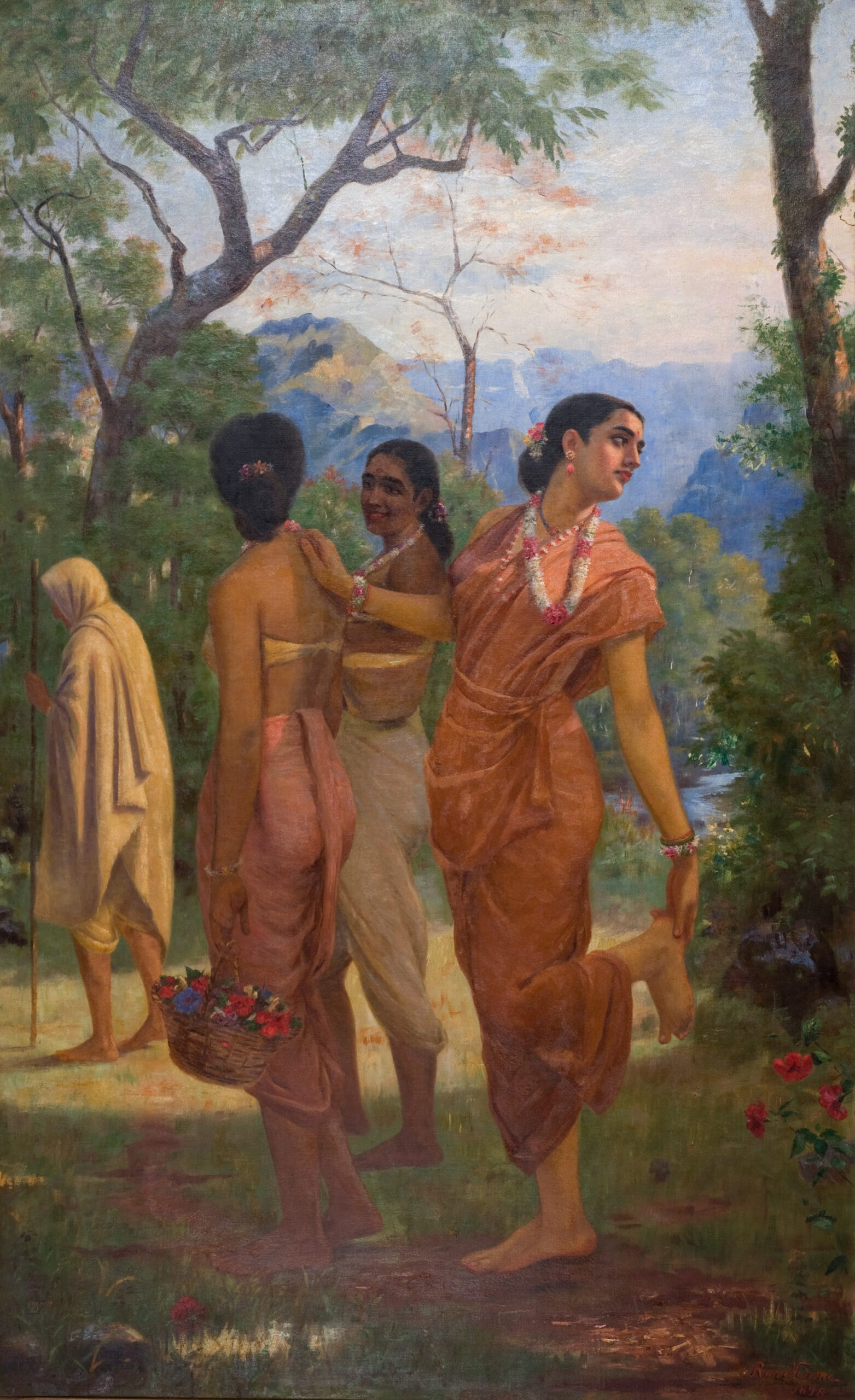Union Home Minister Amit Shah recently launched a sharp attack on Congress leader Rahul Gandhi over his controversial statements during a visit to the United States. Over the course of his three-day trip, Gandhi made critical remarks about Prime Minister Narendra Modi and the Bharatiya Janata Party (BJP), sparking a fresh round of political debate in India. Shah’s response underscores the ongoing ideological battle between the ruling BJP and the opposition Congress, with both parties accusing the other of undermining the nation’s unity and security.
Rahul Gandhi’s Remarks: A Stirring Controversy
Rahul Gandhi’s visit to the US drew attention not only for his speeches but for the direct criticism he leveled at Prime Minister Modi and his government. While speaking to students at Georgetown University, Gandhi discussed India’s reservation system, democracy, and the influence of certain sections of society in government decision-making. His statements suggested that India is not yet a “fair” society and hinted that the Congress might reconsider the reservation policy once such fairness is achieved.
Gandhi argued that the bureaucrats running the country do not represent its diverse population. He pointed out that although Dalits, Tribals, and Other Backward Classes (OBCs) make up about 73% of the population, they are underrepresented in key positions of power.

Furthermore, he criticized Prime Minister Modi’s style of leadership, referring to Modi’s claim that he communicates directly with God as a turning point in the 2014 elections. According to Gandhi, this proclamation indicated that Modi positioned himself above others, which Gandhi and his party viewed as problematic.
Amit Shah’s Retort: “Anti-National Statements”
Amit Shah, a senior BJP leader, wasted no time in responding to Gandhi’s statements. He accused Gandhi of aligning with forces that seek to divide India. According to Shah, Rahul Gandhi has a pattern of making “anti-national” remarks, whether it’s in support of controversial policies in Jammu and Kashmir or speaking ill of India on international platforms.
In a post on social media, Shah accused Gandhi and the Congress party of attempting to sow discord by focusing on regional, religious, and linguistic divides. He also expressed concern over Gandhi’s comments on reservations, claiming that Gandhi’s words revealed the Congress party’s historical opposition to the reservation system. Shah assured that as long as the BJP remains in power, no one would be able to abolish reservations or threaten the country’s security.
The Reservation Debate: A Key Flashpoint
Rahul Gandhi’s comments on reservations have ignited a significant debate. The Indian Constitution reserves seats in government jobs and educational institutions for historically marginalized communities, including Dalits, Tribals, and OBCs. The reservation system has been a longstanding feature of India’s democracy, aimed at addressing social inequalities.
While Gandhi did not explicitly call for an end to reservations, his suggestion that the Congress might reconsider the system once the country becomes more equitable was enough to provoke the BJP’s strong response. Shah seized on these remarks, portraying the Congress party as anti-reservation and out of touch with the aspirations of marginalized communities.
Gandhi’s critics argue that his stance could alienate large sections of the population that have benefited from the reservation system. For the BJP, which has cultivated strong support among OBCs and other groups, the issue is a potent political weapon.
The Broader Political Context: Ideological Differences
The latest spat between Rahul Gandhi and Amit Shah is emblematic of the broader ideological struggle between the Congress and the BJP. The BJP, under Prime Minister Modi, has positioned itself as a nationalist party, focused on strengthening India’s security and promoting the interests of the Hindu majority, while also championing economic growth and social welfare schemes aimed at marginalized communities.
In contrast, the Congress under Rahul Gandhi has sought to highlight issues such as democracy, social justice, and the rights of minorities. Gandhi’s speeches during his US visit reflect his party’s emphasis on protecting India’s secular identity and addressing the concentration of power in the hands of a few.
Gandhi’s remarks on democracy being “broken” in India over the last decade have been particularly controversial. He implied that the BJP government, through its actions, has undermined democratic institutions and stifled dissent. According to Gandhi, democracy is now “fighting back,” a statement that aligns with the Congress party’s narrative of resisting authoritarianism.
BJP’s Response: Defending India’s Image
The BJP has responded fiercely to Gandhi’s allegations, not only dismissing his claims but also accusing him of tarnishing India’s reputation on the global stage. Union ministers like Piyush Goyal and Hardeep Singh Puri have attacked Gandhi for his remarks, particularly his references to Sikh rights. Goyal criticized Gandhi for spreading “lies” about the freedom of Sikhs in India, arguing that the Congress party has historically failed to protect Sikh interests, particularly during the 1984 anti-Sikh riots.
Hardeep Singh Puri went further, calling Gandhi’s remarks “sinister,” suggesting that he was attempting to create a rift between the Sikh community abroad and the Indian government.
The Fallout: A Divided Political Landscape
The political fallout from this episode is likely to further polarize the Indian electorate. For the BJP, Rahul Gandhi’s foreign visits and statements provide an opportunity to paint the Congress leader as out of touch with Indian values and interests. By framing Gandhi’s comments as “anti-national,” the BJP is appealing to its nationalist voter base, emphasizing its role as the protector of India’s unity and security.
For the Congress, Gandhi’s remarks are part of a broader effort to challenge the BJP’s dominance and present an alternative vision for the country. Gandhi’s focus on democratic values, social justice, and secularism aims to rally support from minorities, progressive voters, and those disillusioned with the current government.
https://topnewssurf.com/trump-vs-kamala-harris-presidential-debate2024/
Conclusion
The clash between Amit Shah and Rahul Gandhi over the latter’s US remarks is the latest chapter in India’s increasingly polarized political narrative. While the BJP continues to push its message of nationalism and security, the Congress is focusing on issues of fairness, representation, and democracy. As India approaches future elections, these ideological battles will only intensify, with each party seeking to define the country’s future in its own image.





One thought on “Amit Shah Criticizes Rahul Gandhi’s US Remarks: A Battle of Ideologies 1”